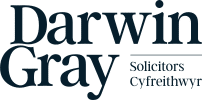October 21, 2020
October 2020 marks the 10th anniversary of the Equality Act 2010 (EqA 2010). Employment lawyer Damian Phillips reflects on the past decade.
What is the Equality Act 2010?
The EqA 2010 is considered by many to be a landmark piece of legislation. Not only did it consolidate existing laws to protect against discrimination but it also improved the protections that were already in place.
The EqA 2010 prohibits organisations from discriminating against individuals based on the following protected characteristics; age, disability, gender reassignment, marriage and civil partnership, pregnancy and maternity, race, religion or belief, sex, sexual orientation.
From an employer’s perspective, it is wide in its scope since it applies to employees, workers, agency staff, job applicants and former staff and applies as soon as the recruitment process starts.
What does is the Act protect against?
The EqA 2010 established four main types of discrimination:
a) Direct discrimination, where a person discriminates against another person “because of” a protect characteristic, treating them less favourably than they treat or would treat others;
b) Indirect discrimination, where an organisation puts a rule, policy or practice in place which has a detrimental impact on someone with a protected characteristic in comparison to someone without one;
c) Harassment is unwanted conduct related to a protected characteristic, which has the effect of violating of person’s dignity, or creates a hostile, offensive, degrading, or humiliating environment; and
d) Victimisation: where an individual is treated badly by an employer because they made or supported a complaint of discrimination.
The EqA 2010 also established two additional forms of discrimination specifically related to the protected characteristic of disability:
e) A duty to make reasonable adjustments for disabled staff/job applicants to ensure that they are not placed at a substantial disadvantage at work because of their disability; and
f) Discrimination arising from disability which makes it unlawful for employers to subject disabled staff to a detriment because of something “arising out of their disability”, e.g. dismissing an employee, not because of their disability, but because of they have been on long-term sickness absence.
Reflecting on the past 10 years
Whilst the EqA 2010 has achieved its aim of outlawing discrimination, the past 10 years have not been without their challenges. For example, employers still struggle to balance the often-competing interests between certain protected characteristics, such as religion and sexual orientation.
Employers have also had to battle with blurred lines on whether something may amount to a protected characteristic, particularly regarding philosophical belief. For example, where is the line drawn between an ethical vegan (found by the Employment Tribunal to amount a protected belief under the EqA 2010) and a dietary vegan (which was held not to be sufficient to amount to a philosophical belief)?
Looking forward
There have been calls for certain other characteristics to be protected under the EqA 2010. Obesity is one example. As matters stand, the effects of being obese could mean that a person is deemed to be disabled under the EqA 2010, but actually being obese is not in itself a protected characteristic. Whilst there are many underlying causes of obesity, given that lifestyle choices is one, I suspect that politically it would be a difficult step to make it a protected characteristic.
Case law has shown that protection offered by the various protected characteristics under the EqA 2010 has been able to evolve to benefit members of our ever increasingly diverse society and I believe that the vast majority of people would agree that it has been successful to that end. Hopefully, this in turn will lead to greater understanding and tolerance. The ultimate success would be the eradication of discrimination, whether in the workplace or generally, so that the need for laws promoting equality become redundant.
 Equality Act 2010: Reflecting on the Past 10 Years
Equality Act 2010: Reflecting on the Past 10 Years


















